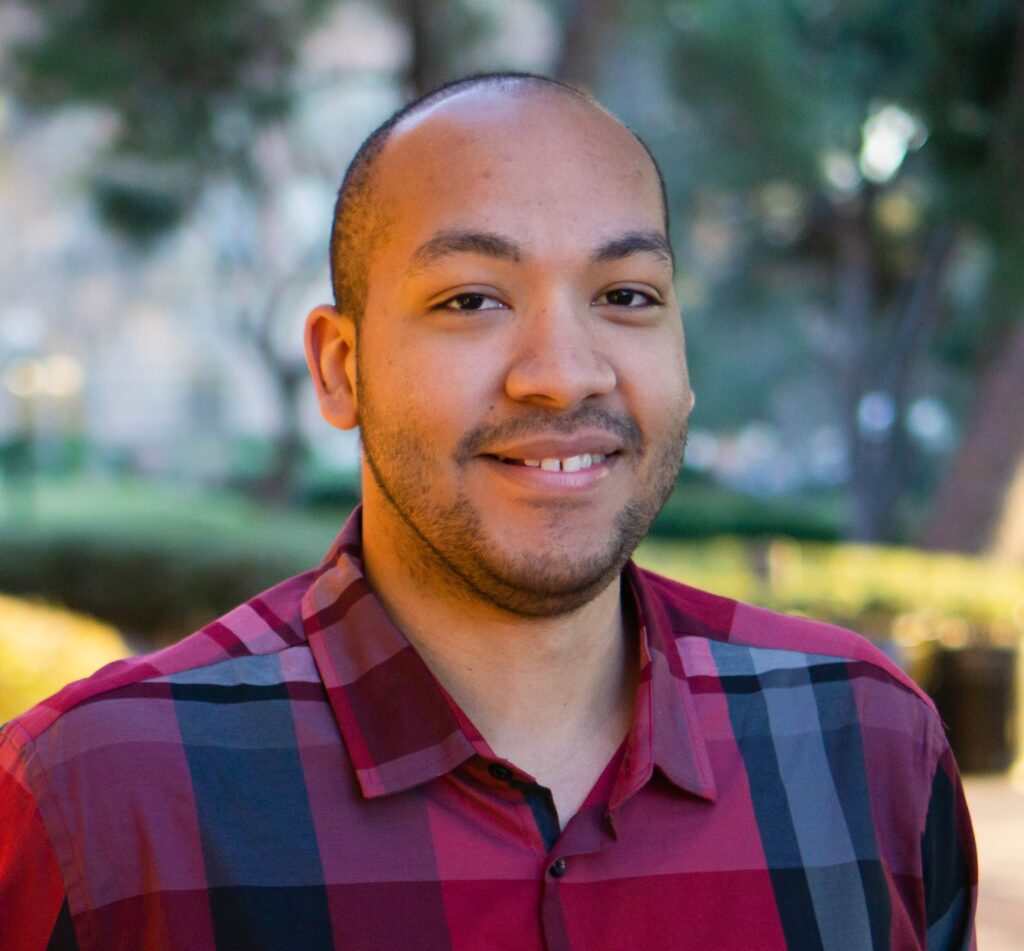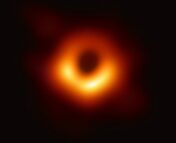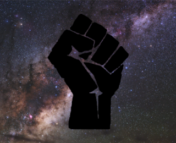Ronald López is an astronomy and astrophysics Ph.D. student at UCLA and soon-to-be National Science Foundation (NSF) Postdoctoral Fellow at UC Santa Barbara. His diverse research portfolio focuses on a variety of topics related to instrument development and direct imaging of debris disks. I recently had the opportunity to sit down with Ronald to chat about his journey from community college to UCLA and hear some words of wisdom he’s picked up along the way.

Ronald’s astronomy journey began with a dream to understand the wonders of space (yes, he knows it’s a cliche). Growing up in the greater Los Angeles area, he decided from age 5 that he wanted to get his Ph.D. and become a professional astronomer when he grew up (despite not really knowing what that even was). This passion persisted through high school, at which point he applied to a few universities around California, hoping to study astronomy. However, he didn’t get into any of his top-choice schools and was faced with what felt like a conundrum: he had to choose between attending California State University Northridge (CSUN) or going to community college and transferring to a four-year university after two years. And so, hoping to prove to himself that he could get into one of the big UC schools if given another shot, he chose to attend Los Angeles Pierce College, a community college in the San Fernando Valley. Ronald looks back on his time at Pierce fondly, describing it as “the most valuable two years of schooling [he] had had up to that point,” largely because of the community with which he was surrounded. That is, he found that everyone at community college was there with a real sense of purpose—no matter their background or experience, everyone was in class because they truly wanted to be there—they were “some of the most motivated and intelligent people [he’d] ever met.”
After two years at Pierce, what had once seemed like an impossible dream for Ronald became a reality: he was admitted to UCLA to finish his undergraduate degree. However, making this transition was not easy. As Ronald describes it, “a big part of coming from community college is dealing with imposter syndrome” and he articulated this with an anecdote:
“I remember coming in and sitting in my first astronomy course at UCLA. We were given a homework question about calculating the temperature of the moon… and I remember not having any clue how to solve the problem. I thought, oh my god—this is what UCLA is. This is the end of my astronomy career. What am I doing here? I’m a community college student going to UCLA—this must have been a mistake.”
As he grappled with these feelings, he told himself that he wouldn’t give up on his astronomy dreams just yet and decided to go to the professor’s office hours. Upon arriving there, he found that “half the class was in office hours, because nobody knew how to solve [that] problem.” This bolstered his confidence, and validated that he was just as qualified as everyone else to be there.
As he finished up his undergraduate degree, Ronald started to think about applying to graduate school. As the first member of his family to go to graduate school, he didn’t know a lot about what was required or expected of him as an applicant—it wasn’t until a conversation with an academic advisor near the end of his junior year (his first year as a transfer at UCLA) that he realized he should start looking to get his feet wet with a research group. After that conversation, he spoke with some faculty in the department and got involved with a few projects related to exoplanet theory and observation. However, as a transfer student already balancing the responsibilities of finishing the full physics curriculum in a compressed, two-year timeline, adding in research was a lot to juggle. As a result, Ronald opted to push off his graduate applications for a few years and built up his research portfolio in the meantime, ultimately choosing to attend UCLA as a graduate student as well.
As a graduate student at UCLA, Ronald dove into astronomy instrumentation, working on methods and instruments designed to improve detection and characterization of directly imaged exoplanets. Instrumentation is often (puzzlingly) eschewed as a ‘less-scientific’ and inferior subfield by other astronomers, but Ronald emphasizes the beauty in his work. As an instrumentalist, you “take something that is invisible to you and make it visible”—you are truly “figuring out the unknown.”
It was during this time, as he transitioned from undergraduate to graduate student and became involved with astronomy instrumentation, that Ronald realized just how few astronomers of color work in instrumentation. That is, as an Afro-Latino astronomer, he was already aware that “there weren’t a lot of people who looked like [him] or acted like [him] in these spaces” and such issues are only heightened in the instrumentation subfield, introducing another host of challenges with finding a sense of belonging. Given that the opportunities to speak to Black or Latinx astronomers were few and far between, Ronald was able to navigate this experience by seeking advice from mentors who had faced similar challenges, whether they be as a gender or race minority in the field. He also credits his Ph.D. advisor, Professor Mike Fitzgerald, with being extremely supportive and creating a welcoming environment in his research group.
Building these sorts of support networks are crucial for finding success in an academic environment—as Ronald describes, “at every step of the way you feel that imposter syndrome creeping in. As you go to an even more limited or exclusive stage, there are going to be fewer and fewer people that look and act like you, so you need to find people that will hype you up.” To that end, “though it sometimes feels impossible to understand or accept that you belong, listen when people compliment you and when they tell you that you’re doing well.” In kind, Ronald also emphasized the importance of asking lots of questions. Though “you might feel dumb asking all these questions now, [if you don’t], then it will feel worse later down the line when you have more responsibilities and you have less opportunities to ask questions.”
Throughout his academic journey, Ronald has also emphasized the importance of supporting and leading Diversity, Equity and Inclusion (DEI) initiatives. Rather than putting off such work until you’re in a position of power, he believes that there are ways to have an impact at every step of your academic career. With experiences ranging from work as the graduate representative for the astronomy program to being a UCLA planetarium coordinator and serving as part of the advisory committee to the UCLA Dean of Physical Sciences on DEI issues, Ronald has built his academic career around one core tenet: empathy.
Recognizing that empathy is what got him to where he is now, Ronald works to ensure that everyone around him feels welcome and accepted. As a graduate student at UCLA myself, I’ve had the privilege of being his peer for the past few years and have witnessed this commitment firsthand. He has been an integral part of developing and supporting a welcoming graduate student community at UCLA and I have no doubt that he will continue to do so at UCSB and beyond.
Astrobite edited by Jessie Thwaites
Featured image credit: Ronald López



